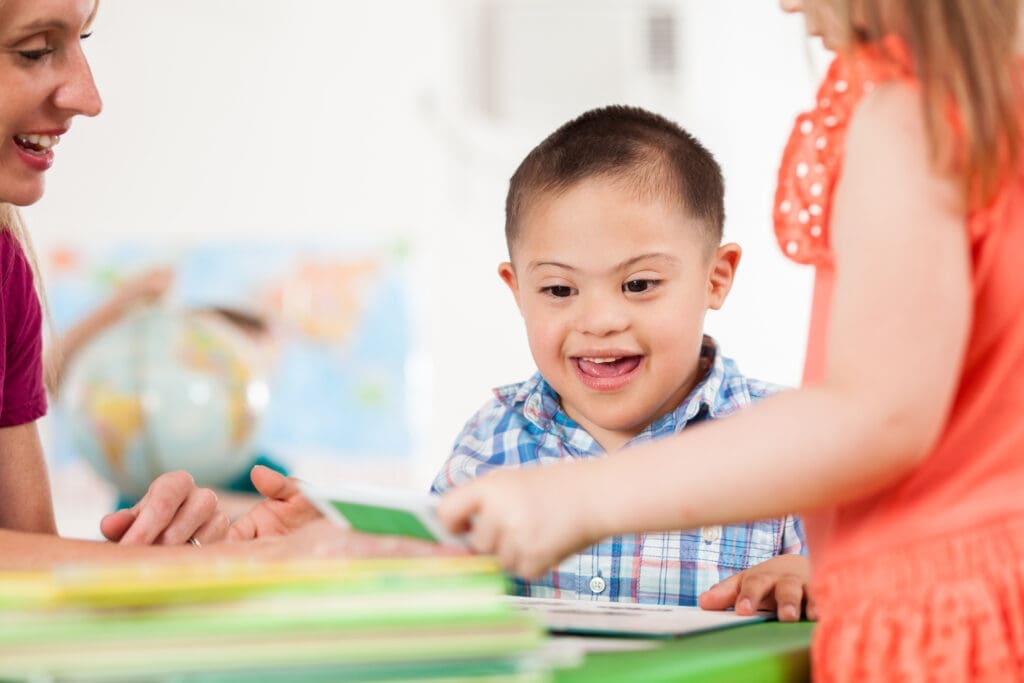Autism specialists in Albuquerque play a pivotal role in transforming the lives of individuals with autism spectrum disorder (ASD).
Under the expert guidance and care of these specialists, Autism Behavioral Analysis (ABA) therapy provides a structured and evidence-based approach that empowers individuals with ASD to develop meaningful changes in behavior.
At Camino, we take immense pride in being a local ABA therapy provider, offering each child under our care personalized attention and customized treatment plans.
In this blog post, we’ll explore the essential responsibilities of an ASD specialist in Albuquerque’s ABA programs, highlighting their role in fostering the growth and development of children with autism spectrum disorder.
Responsibilities in Care and Treatment Planning
When it comes to autism support, the responsibilities of a certified autism specialist begin with the crucial task of care and treatment planning.
Assessment and Development
One of the foremost responsibilities of an autism behavior specialist is to assess the unique needs of a child.
Through a behavior analytic assessment, they determine your child’s current skills and specific areas requiring intervention, including challenging behaviors. This initial assessment provides the foundation for creating an individualized treatment plan that caters to your child’s needs and goals.
Collaboration With Professionals
Collaboration is at the heart of effective ABA therapy programs. ABA specialists work closely with a team of professionals, including occupational therapists and registered behavior technicians, to ensure a holistic approach to treatment.
Through interdisciplinary collaboration, they develop comprehensive strategies that address not only the core symptoms of autism but also related challenges, such as communication and sensory issues.
Monitoring and Reporting
Once treatment plans are in place, autism professionals continually monitor your child’s progress. Regular data collection allows them to gauge the effectiveness of interventions and make necessary adjustments.
These specialists are responsible for tracking and documenting your child’s progress, ensuring that goals are met, and modifications are made as needed. This ongoing assessment is crucial for adapting treatment plans to your child’s evolving needs.
Responsibilities in an Educational Setting
The responsibilities of ABA therapy specialists extend far beyond clinical care, encompassing a critical role in educational settings.
Creating a Welcoming Environment
In educational settings, therapists specializing in autism play a vital role in creating an inclusive and welcoming environment for children with autism.
They collaborate with teachers and school staff to ensure that the physical and social environment supports your child’s unique needs. This may involve modifying the classroom layout, providing sensory tools, or implementing visual supports to enhance communication.
Social Interaction Support
Autism clinical specialists are also instrumental in facilitating social interaction among children with autism and their peers.
An essential aspect of ABA therapy is enhancing your child’s everyday life skills. Through one-on-one exercises or group activities, therapists aim to help your child build meaningful connections and navigate social situations effectively.
Managing Sensory and Communication Issues
Children with autism often experience sensory sensitivities and communication challenges. Specialists work with students to develop strategies for managing sensory overload and improving communication skills.
They may introduce sensory integration techniques and augmentative communication devices to support your child in expressing themselves and regulating sensory experiences.
The Importance of Social Skills Development
In the journey to support children with autism in reaching their full potential, one aspect stands out as particularly vital: the cultivation of social skills.
Understanding Autism and Social Skills
Social skills development is a cornerstone of autism intervention. Behavioral therapists have a deep understanding of how autism can impact a child’s ability to engage in social interactions.
They recognize that your child may struggle to understand social cues, maintain eye contact, or empathize with others. As such, they focus on teaching and reinforcing these skills to help your child thrive in social settings.
Therapeutic Programs
Dedicated professionals design and implement therapy programs that specifically target social skills development. These therapy sessions are tailored to your child’s age, level of functioning, and unique challenges.
They incorporate evidence-based strategies, such as positive reinforcement, to teach social skills systematically and help your child generalize these skills to various social contexts.
Discover the Transformative Support Your Child Deserves With Our Autism Specialists in Albuquerque
At Camino, we recognize the importance of compassionate, trauma-informed care. We ensure each child’s emotional well-being is prioritized throughout their therapeutic journey. Our experts work closely with caregivers, empowering you with monthly parent training sessions to ensure the best possible outcomes for your child.
We also facilitate progress through our early intervention ABA program, as early support can build a strong foundation for your child’s future success and quality of life.
Contact our autism specialists in Albuquerque to schedule a consultation today.

